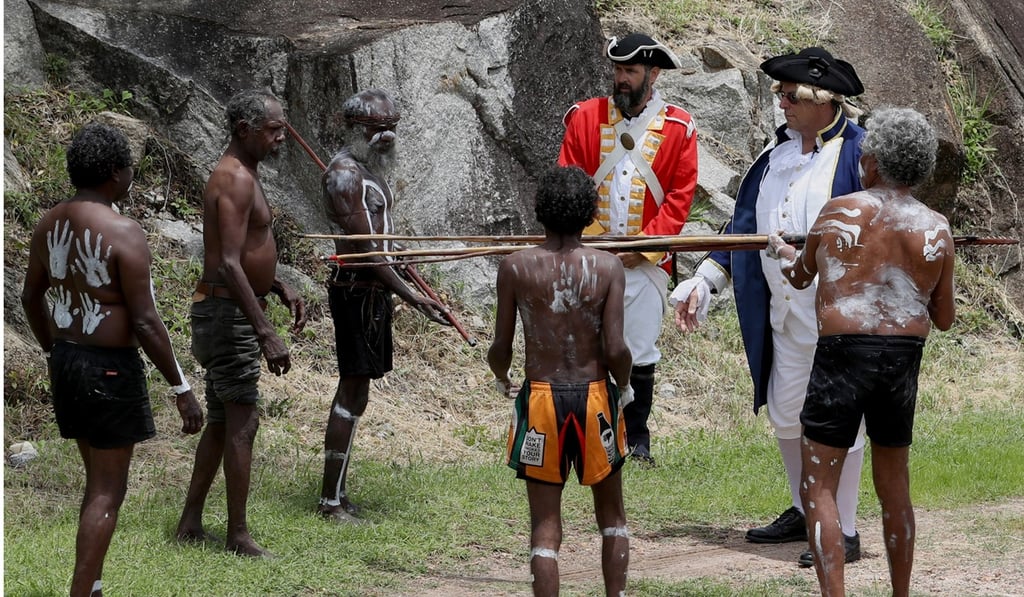Asian Angle | The stand Down Under: why debate over Australia Day and Captain Cook divides a nation
- Australia’s national day falls on the anniversary of the arrival of colonisers who arrived centuries ago, armed with privilege that endures today
- January 26 remains a day of great pain to the Indigenous community, but conservatives – including the government – are opposed to change

On January 26, 1788, a British fleet of 11 ships landed on what would become Sydney. Captain James Cook wasn’t among them; the British explorer had showed up 18 years earlier to slap a Union Jack on what is now charmingly called Possession Island. The legal argument for Great Britain’s claim is the concept of terra nullius, which translates from the Latin into “nobody’s land” – and also translates into a convenient way to ignore that the continent was already home to Indigenous people with a history dating back just 65,000-or-so years.
The journey of the HMS Endeavour’s modern-day replica is meant to end on the 250th anniversary of the First Fleet’s arrival on those shores, on Australia Day. Let’s pause a minute to take stock here.
Australia’s national day, the day the entire country is meant to collectively reflect and take pride on all that it is and was and could be, falls on the anniversary of the arrival of colonisers who came armed with the enduring privilege of believing their systems and values were more valuable than those of the supposedly wild land and wilder people they had come to tame.

For many Australians, the date is an ocean of hurt away from a day of celebration. In 1938, Indigenous Australians wore black suits on what was dubbed the National Day of Mourning, marching in protest of the discrimination they endured. “White men pretend that the Australian Aboriginal is a low type who cannot be bettered,” Aboriginal Progressive Association president Jack Patten said at the time. “Our reply to that is, ‘Give us the chance!’ We do not want to be left behind in Australia’s march to progress. We ask for full citizen’s rights.”
In the 1980s, Indigenous Australians started referring to January 26 as Invasion Day, then later Survival Day, an ironic counterpoint to the colonial celebrations. In Melbourne, last year’s Invasion Day rally drew up to 60,000 people, far outnumbering the official Australia Day parade. That same year, national youth broadcaster Triple J moved its iconic Hottest 100 – a round-up of the year’s best songs, voted upon and listened to by millions – to January 27 after 60 per cent of respondents to a questionnaire favoured doing so. And campaigns to change the date, and even to abolish Australia Day itself, have gained much traction in recent years.
